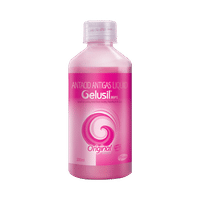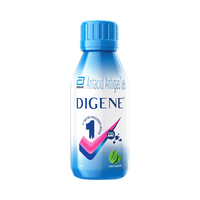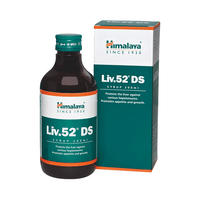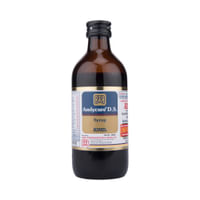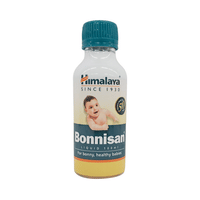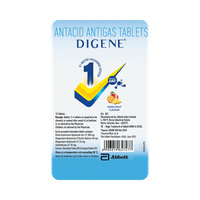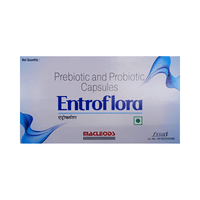Rs.111for 1 vial(s) (2.5 ml Injection each)
food interaction for raBicip Injection
alcohol interaction for raBicip Injection
pregnancy interaction for raBicip Injection
lactation interaction for raBicip Injection
food
alcohol
pregnancy
lactation
No interaction found/established
It is not known whether it is safe to consume alcohol with Rabicip-IV Injection. Please consult your doctor.
CONSULT YOUR DOCTOR
The safety of Rabicip-IV Injection during pregnancy has not been established. There are no adequate and well-controlled studies in pregnant women, and animal data on reproductive toxicity are insufficient. Your doctor will weigh the benefits and any potential risks before prescribing.
CONSULT YOUR DOCTOR
Rabicip-IV Injection is unsafe to use during breastfeeding. Data suggests that the drug may cause toxicity to the baby.
UNSAFE
SALT INFORMATION FOR raBicip 20mg Injection
Rabeprazole(20mg)
Rabicip injection uses
{med_name} is used in the treatment of acidity, gastroesophageal reflux disease (acid reflux) and peptic ulcer disease.
How rabicip injection works
Rabicip-IV Injection is a proton pump inhibitor (PPI). It works by reducing the amount of acid in the stomach which helps in relief of acid related indigestion and heartburn.
Common side effects of rabicip injection
Abdominal pain, Weakness, Diarrhea, Nervousness, Bronchitis (inflammation of the airways), Sinus inflammation, Sleepiness, Vertigo, Rash, Dryness, Increased liver enzymes, Dermatitis, General discomfort, Decreased white blood cell count (neutrophils), Decreased white blood cell count, Low blood platelets, Increased white blood cell count, Decreased appetite, Depression, Visual disturbance, Stomach inflammation, Stomatitis (Inflammation of the mouth), Taste change, Itching, Sweating, Weight gain, Thrombophlebitis, Headache, Nausea, Vomiting, Flatulence, Dizziness
SUBSTITUTES FOR raBicip Injection
604 Substitutes
604 Substitutes
Sorted By
 Rs. 113.44pay 84% more per Injection
Rs. 113.44pay 84% more per Injection Rs. 163.31pay 93% more per Injection
Rs. 163.31pay 93% more per Injection Rs. 110.16pay 98% more per Injection
Rs. 110.16pay 98% more per Injection Rs. 144.70save 53% more per ml of Injection
Rs. 144.70save 53% more per ml of Injection Rs. 42.19save 32% more per Injection
Rs. 42.19save 32% more per Injection
Expert advice FOR raBicip Injection
- Your doctor will administer Rabeprazole as an injection into a vein.
- It is a well-tolerated medicine and provides relief for a long time.
- Some healthy tips to prevent acidity from happening:
- Avoid excessive intake of carbonated beverages/soft drinks, citrus juices, fried food, caffeinated beverages like tea and coffee.
- Avoid alcohol and smoking.
-
Avoid eating late at night or before bedtime.
- Inform your doctor if you get watery diarrhea, fever or stomach pain that does not go away.
- Long-term use of Rabeprazole can cause weak bones and a deficiency of minerals such as magnesium. Take adequate dietary intake of calcium and magnesium or their supplements as prescribed by your doctor.
- Consult your doctor right away if you develop decreased urination, edema (swelling due to fluid retention), lower back pain, nausea, fatigue, and rash or fever. These could be signs of a kidney problem.
- Rabeprazole should be taken 1 hour before a meal, preferably in the morning.
- It is a well-tolerated medicine and provides relief for a long time.
- Some healthy tips to prevent acidity from happening:
- Avoid excessive intake of carbonated beverages/soft drinks, citrus juices, fried food, caffeinated beverages like tea and coffee.
- Avoid alcohol and smoking.
-
Avoid eating late at night or before bedtime.
- Inform your doctor if you get watery diarrhea, fever or stomach pain that does not go away.
- Inform your doctor if you do not feel better after taking it for 14 days as you may be suffering from some other problem that needs attention.
- Long-term use of Rabeprazole can cause weak bones and a deficiency of minerals such as magnesium. Take adequate dietary intake of calcium and magnesium or their supplements as prescribed by your doctor.
- Consult your doctor right away if you develop decreased urination, edema (swelling due to fluid retention), lower back pain, nausea, fatigue, and rash or fever. These could be signs of a kidney problem.
Frequently asked questions FOR raBicip 20mg Injection
Rabeprazole
Q. What is Rabicip-IV Injection used for?
Rabicip-IV Injection is used for the treatment of stomach and intestinal ulcers (gastric and duodenal ulcers), reflux esophagitis or gastroesophageal reflux disease (GERD). It works by reducing the amount of acid made by your stomach and thus relieves your symptoms. Rabicip-IV Injection also prevents acidity associated with use of painkillers and stress ulcers in critically ill people. It is also used to treat a disease associated with excessive acid production in the stomach known as Zollinger Ellison syndrome (ZES). Rabicip-IV Injection is also helpful as a preanesthetic medication (medicine given just before anesthesia) to reduce the chances of aspiration related complications like lung injury.
Q. Can I stop taking Rabicip-IV Injection if I feel better?
No, do not stop taking Rekool before completing the full course of treatment. You will start to feel better before your treatment is complete. Rabicip-IV Injection is given into a vein, only if oral administration is not possible, for upto 7 days. As soon as the person is able to take it orally, intravenous administration is stopped and oral form is prescribed. Take Rabicip-IV Injection only as prescribed by your doctor to get maximum benefit.
Q. Is Rabicip-IV Injection safe?
Yes, Rabicip-IV Injection is relatively safe. Most of the people who take Rabicip-IV Injection do not get a side effect. It is advised to be taken as directed by the doctor for maximum benefits.















